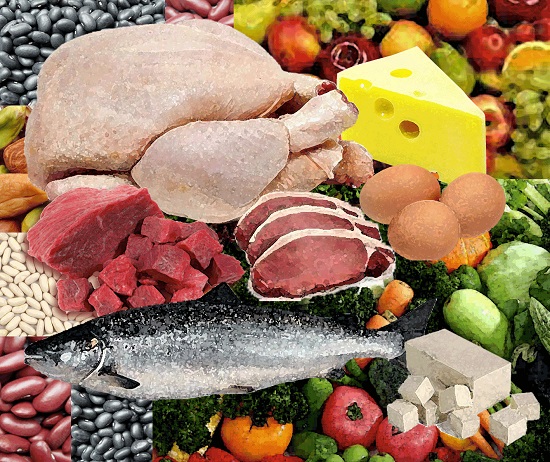Positive Health Online
Your Country

Meat, How to Keep it a Healthy Part of your Diet
listed in nutrition, originally published in issue 227 - January 2016
Last month saw more good news for vegetarians. An announcement from the World Health Organisation (WHO) informed us that processed meat definitely causes cancer. Processed meat has now been classified as a Group 1 carcinogen, placing it alongside other major risk factors including asbestos, smoking and alcohol. The International Agency for Research on Cancer, working on behalf of WHO, scrutinised over 800 studies to come up with their conclusions, that processed meat increases the risk of bowel cancer by 18% and that red meat is “probably carcinogenic to humans”.
Processed meat includes foods such as sausages, bacon, frankfurters, prosciutto, corned beef, ham, biltong, salami and pepperoni. The most often used processing methods are adding salt, curing, fermenting or smoking. Beef or pork products are the foods most frequently associated with processed meat. However, poultry can also contain it. Mince and fresh burgers are not included under the category of processed meat.
So exactly how does processed meat cause cancer? The precise mechanism isn’t known. However, there seem to be two issues. First, cooking, particularly at high temperatures, turns chemicals in processed meat into cancer causing substances. An example is nitrosamines formed from sodium nitrate. Second, all red meat, whether processed or not, contains a substance called haem, a component of haemoglobin, the iron containing, oxygen carrying protein in red blood cells. Haem is broken down into chemicals which damage the cells that line the intestinal wall, triggering off a process which eventually leads to cancer further down the line. Other meat also contains haem but in much smaller quantities.

12 Ways to Make Meat Healthier
Meat is a good source of vitamin B12, zinc and iron. It is possible to obtain these nutrients from other foods. However if you are a meat lover, here are some tips to help make meat a healthier part of your diet.
- Eat mainly whole unprocessed meat;
- Fry at low temperatures (i.e. before the oil reaches smoke point) and turn the meat over regularly during cooking. Cook for as little time as possible, whilst ensuring the meat is safe to eat;
- Avoid high temperature cooking on an open flame such as a barbeque. Charred meat is particularly high in toxic chemicals. Use a regular gas or electric grill;
- Cook with oils that are higher in saturated fat because they are more stable when heated and produce less harmful chemicals. Examples are butter, lard or coconut oil. Avoid polyunsaturated vegetables oils such as sunflower or corn which are highly unstable. Olive oil is fine too because it is high in mono unsaturated fat, also more stable at high temperatures. Use kitchen paper to absorb excess oil from fried food before eating;
- Trim any fat from meat before cooking on a barbeque to prevent the production of toxic aromatic hydrocarbons (PAHs);
- Marinate meat before cooking. Researchers found that marinating meat in beer or red wine for 6 hours before cooking significantly reduced the formation of toxic HCAs (heterocyclic amines). Lemon juice and vinegar can also be used for their protective effects;
- Ginger, rosemary, cloves, black pepper and turmeric were also found to have a protective effect against HCAs. Make a dry rub out of these ingredients and coat the meat before cooking. Laura Santtini’s Flash Cooking, Fit Fast Flavours for Busy People has some great ideas for rubs and marinades;
- Eat smaller portions of red meat. The government advice is a maximum of 70g daily. To put this in context, one sausage is 30g, one rasher of bacon 25g and an average portion size of mince, around 100g;
- Replace some of the meat in dishes such as spaghetti Bolognese, casseroles or curry with lentils (the puy variety of lentils have a “meaty” flavour), chickpeas or grated carrot;
- Choose good quality meat. Whilst the buying the best quality sausages or bacon isn’t going to reduce the cancer causing chemicals, they will contain more meat and less additives and fillers. Ideally make your own sausages and burgers or buy them freshly made from a butcher without any preservatives or additives in them;
- If you are in the habit of eating meat twice per day, replace one meat portion with fish or with a vegetarian protein such as chickpeas, lentils, beans, tofu, soft or hard cheese, eggs or nuts;
- Eat meat with plenty of fresh vegetables which contain antioxidants to help reduce the harmful effects of toxic substances. Generally include high amounts of fruit and vegetables in your diet to neutralize toxins.
References
Véronique Bouvard, Dana Loomis, Kathryn Z Guyton, Yann Grosse, Fatiha El Ghissassi, Lamia Benbrahim-Tallaa, Neela Guha, Heidi Mattock, Kurt Straif. Carcinogenicity of consumption of red and processed meat. International Agency for Research on Cancer Monograph Working Group Published Online: 26 October 2015.
Schor J. Marinades Reduce Heterocyclic Amines from Primitive Food Preparation Techniques. Natural Medicine Journal. 2 (7): July 2010.
Viegas O, Amaro LF, Ferreira IM, et al. Inhibitory effect of antioxidant-rich marinades on the formation of heterocyclic aromatic amines in pan-fried beef. J Agric Food Chem; 60(24):6235-40. June 20 2012.
Smith JS1, Ameri F, Gadgil P.
Effect of marinades on the formation of heterocyclic amines in grilled beef steaks. J Food Sci.73(6):T100-5. Aug 2008.
Farhadiana A, Jinapa S, Faridahb A, Zaidule ISM.
Effects of marinating on the formation of polycyclic aromatic hydrocarbons in grilled beef meat Food Control 28(2): 420–425. 2012.
Comments:
-
No Article Comments available